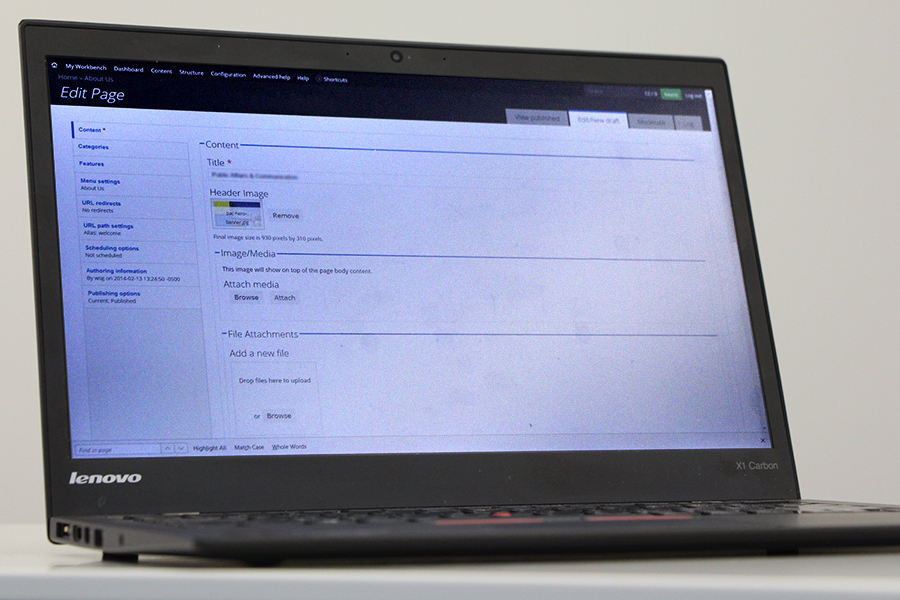
A free class Tuesday, Feb. 26, will help staff and faculty responsible for maintaining UWindsor websites learn the basics of the Drupal content management system.
Website Basic Training will focus on teaching site editors how to create pages and events, upload graphics and use menus and blocks, says instructor Rob Aitkens, web development team lead in Information Technology Services.
He will also cover the University and legislative guidelines for posting content.
The class is required for all employees responsible for maintaining UWindsor websites and is valuable for those with little previous experience with the system, for those upgrading their sites from version 6 to 7, or as a refresher. It will run 1:30 to 4 p.m. in the University Computer Centre’s lower-level classroom.



